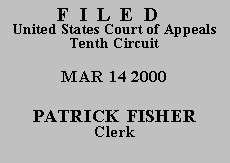

| UNITED STATES OF AMERICA, | No. 99-2118
(D.C. No. CR-98-0753-SC) |
Santos-Garcia requested appeal of his sentence, and his attorney complied and perfected the appeal. However, Santos-Garcia's counsel has filed a brief pursuant to Anders v. California, 386 U.S. 738 (1967), and has requested leave to withdraw for the reason that defendant's appeal is frivolous. Counsel informed Santos-Garcia of his motion to withdraw, provided him with a copy of his brief, and informed Santos-Garcia that he had a right to respond to counsel's brief.
In his brief, counsel asserts that Santos-Garcia wanted to challenge his sentence on two grounds. First, Santos-Garcia argues that the sentencing court erred when it denied his motion for downward departure, and second, he contends that his sentence is excessive and violates the Eighth Amendment's prohibition against cruel and unusual punishment. Counsel for Santos-Garcia believes both of these arguments are without merit.
With regard to Santos-Garcia's first argument, we have held that courts of appeals "cannot exercise jurisdiction to review a sentencing court's refusal to depart from the sentencing guidelines except in the very rare circumstance that the district court states that it does not have any authority to depart from the sentencing guideline range for the entire class of circumstances proffered by the defendant." United States v. Castillo, 140 F.3d 874, 887 (10th Cir. 1998); United States v. Diaz, 189 F.3d 1239, 1250 (10th Cir. 1999). After reviewing the record, we find that the district court did not indicate that it believed it lacked authority to grant the downward departure; instead, the court simply stated that it did not accept either position advanced by Santos-Garcia. We therefore hold that we lack jurisdiction to review the sentencing court's refusal to grant Santos-Garcia's motion for downward departure.
In addition, Santos-Garcia's argument that his sentence violates the Eighth Amendment is without merit. This court has held that a sentence within the guideline range is not excessive, nor is it cruel or unusual. See United States v. Hughes, 901 F.2d 830, 832 (10th Cir. 1990) ("[I]f a sentence imposed is within the statutory limits, the appellate court generally will not regard it as cruel and unusual punishment." (internal quotations omitted)); United States V. Youngpeter, 986 F.2d 349, 355 (10th Cir. 1993.) Mr. Santos-Garcia's sentence was not only within the guideline range, it was at the bottom of the range. Clearly, Mr. Santos-Garcia's sentence is not disproportionate to this crime. See Harmelin v. Michigan, 501 U.S. 957 (1991) (majority held that imposition of life in prison without parole for possession of 650 grams of cocaine did not violate Eighth Amendment).
After thorough review of the record on appeal and counsel's brief, the court concludes that there are no meritorious issues for appeal. Attorney Peter Edwards' motion to withdraw is granted. This appeal is hereby DISMISSED as to the claim for downward departure and the district court's sentence is AFFIRMED as to the Eighth Amendment challenge.
The mandate shall issue forthwith.
ENTERED FOR THE COURT
David M. Ebel
Circuit Judge
*. After examining appellant's brief and the appellate record, this panel has determined unanimously that oral argument would not materially assist the determination of this appeal. See Fed. R. App. P. 34(a)(2) and 10th Cir. R. 34.1(G). The case is therefore ordered submitted without oral argument. This Order and Judgment is not binding precedent, except under the doctrines of law of the case, res judicata, and collateral estoppel. The court generally disfavors the citation of orders and judgments; nevertheless, an order and judgment may be cited under the terms and conditions of 10th Cir. R. 36.3.